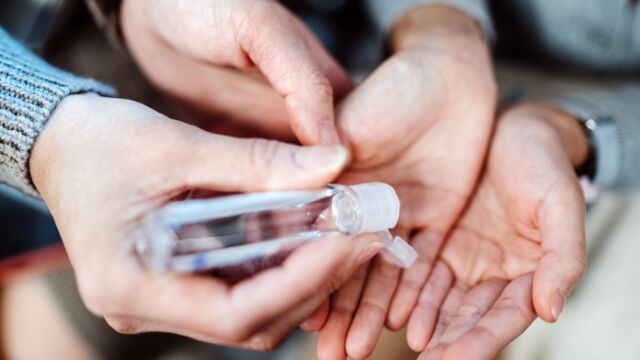Washing our hands and using hand sanitiser is absolutely essential to reduce the spread of coronavirus. However, there is now some growing concern that this could also lead to disinfectant resistance.
Discover our latest podcast
Could overuse of sanitising lead to superbugs?
Concerns of disinfectant and antibacterial resistance are nothing new. Before coronavirus hit the world stage, experts warned of superbugs that could be created due to misuse of both antibiotic and sanitising products.
This antimicrobial resistance has also been identified as one of the greatest risks to humanity. One South African research group has now started working to identify just which microorganisms are becoming resistant to disinfectants. Researcher Samantha McCarlie, of the University of the Free State (UFS) explained:
Antibiotic resistance is becoming one of the biggest life-threatening challenges of our time – even overshadowing the current pandemic – as multidrug-resistant infections are becoming increasingly difficult to treat.
She continued to state that the world is slowly moving into a post-antibiotic era which will create a reliance on disinfectants:
Currently, the best viable protection we have against bacteria is biosecurity and disinfectants. Biosecurity relies heavily on the use of disinfectants to control bacterial growth. This makes it only more troubling that disinfectant resistance is emerging at an alarming rate.
Poor quality disinfectants are at fault
By the year 2050, it is expected that antimicrobial resistance could account for between 10-50 million deaths per year. Researchers believe that using poor quality hand sanitisers could be speeding up this timeline. McCarlie added:
Over-prescribing and improper use of antibiotics has led to widespread antibiotic resistance. We expect the same trend to be seen with disinfectant resistance in the near future. It is therefore very important that reliable high-quality disinfectants are used as hand sanitisers during this COVID-19 crisis, otherwise we will be replacing one crisis with a potentially even bigger crisis.
Back in 2018, Australian researchers conducted a study indicating that some superbugs that already showed characteristics of antibiotic resistance, may also be able to develop resistance to disinfectants. Many similar studies have taken place since then but the general consensus is that sanitisers and disinfectants still do more good than harm.
Charles Letizia, MPH, an epidemiologist in Florida assured that during the pandemic, we should put the idea of superbugs in the back of our minds and continue to opt for reliable hand sanitisers:
People should not worry about hand sanitiser creating a superbug. In fact, hand hygiene is the best way to combat transmission of superbugs, especially in healthcare settings. Hand hygiene is always important, but the COVID-19 pandemic highlights its importance.















